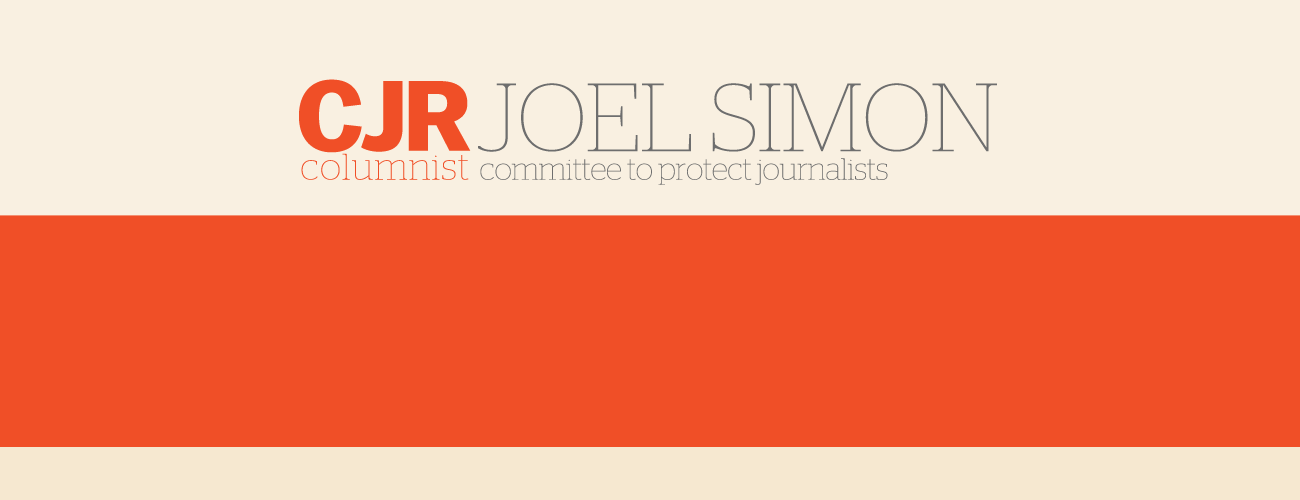Sign up for the daily CJR newsletter.
Ecuador’s new president, Lenin Moreno, took office in May 2017 with a pledge to uphold press freedom, declaring in his inauguration speech, “There can’t be dialogue without freedom of expression.” These words would be unremarkable if not for the fact that Moreno served as vice president under Rafael Correa, who over the course of the previous decade laid waste to the Ecuadoran media. Correa appeared on radio and TV across the country each Saturday, and used his program to denounce the private media as a tool of the oligarchy. He excoriated individual journalists who reported on corruption. In response to one such story, Correa sued El Universo, one the country’s leading dailies, for $80 million.
In his first 10 months in office, Moreno has jettisoned the hostile rhetoric, pledging negotiations with the media and legal reforms to protect press freedom. His ministers engage normally with the press, even appearing on television to answer questions, a practice that Correa banned.
The change in public discourse has already had a profound impact on the press freedom climate in Ecuador. Moreno “has put his best foot forward,” according to Ana María Cañizares, correspondent in Ecuador for CNN en Español. “We’re at a point of inflection,” added César Ricaurte, executive director of Fudamedios, a leading press freedom group.
The change in rhetoric is an important first step, but the Correa administration also created a repressive legal infrastructure that will be difficult to dismantle. For example, Ecuador’s Constitution guarantees the right to receive “truthful, verified” information (as determined by the government, presumably) and declares “communication” a public service, which, like water or electricity, is subject to regulation.
The 2013 Ley de Comunicación, also known as the “Gag Law,” introduced a welter of legal restrictions. It imposes severe punishment for the invented crime of “media lynching,” which can occur when multiple media outlets report on the same allegation. It criminalizes “censorship by omissions” (failing to publish news favorable to the government), and requires media outlets to run detailed “corrections” in response to critical articles. Often these corrections are little more than government press releases.
Moreno understands he cannot effectively purge corruption from his own government, which is rife with Correa cronies, without the support of the media.
Because Ecuador’s Constitution requires that the country have a communications law on the books, the Moreno government claims it cannot legally repeal the gag law. It has promised reform instead. When a delegation from the Committee to Protect Journalists (which I lead) met with Communications Minister Andrés Michelena last week, he pledged that reforms would be completed by the end of the year. He also announced that the president was planning to invite two leading international legal experts, David Kaye, the UN Special Rapporteur for Freedom of Expression, and Edison Lanza, who has a parallel role in the Organization of American States, to visit Ecuador and ensure that the reforms meet international standards.
Moreno’s new relationship with the media reflects the changing political dynamics in Ecuador. Correa’s attacks on the media were effective, politically, because they mobilized his base among the country’s downtrodden. Ecuador has a highly skewed distribution of wealth, and the media companies are owned by powerful commercial interests. But another reason that Correa went after the media was to suppress reporting on the massive corruption schemes that defined his administration. Prominent officials ranging from the former vice president (now in jail) to the head of the National Assembly have been implicated in corruption scandals, and each day brings new revelations. Moreno understands he cannot effectively purge corruption from his own government, which is rife with Correa cronies, without the support of the media. In other words, greater press freedom is essential to his political project.
Correa now resides in Europe (his wife is Belgian) and, ironically, fancies himself a journalist. His new show on Russia Today, Conversando con Correa, premiered with an interview of Noam Chomsky. (Yes, you read that correctly.)
Back in Ecuador, Correa’s anti-media tirades (which have much in common with the language subsequently employed by Donald Trump) have done lasting damage. They reduced public confidence in the media, while emboldening local officials. One Correa ally, the mayor of the provincial city of Loja, has spent the last decade waging a legal assault against a local radio journalist, Freddy Aponte, who accused him of corruption. Aponte was jailed in 2008 for six months on defamation charges and more recently was declared legally insolvent because he does have the resources to pay a $54,000 fine. As a result, Aponte has been stripped on his right to vote and barred from holding a job. He could be returned to prison.
Ecuador, in other words, is still recovering from the hangover brought on by Correa’s excesses. “This is not something you cure with a couple of Alka Seltzers,” acknowledged César Pérez, deputy director of El Universo. The rhetoric may have changed under the Moreno government, Ecuadoran journalists note. But the hard work of legal reform has only just begun.
ICYMI: Seth Rich lawsuit against Fox News stands on unusual legal ground
Has America ever needed a media defender more than now? Help us by joining CJR today.







